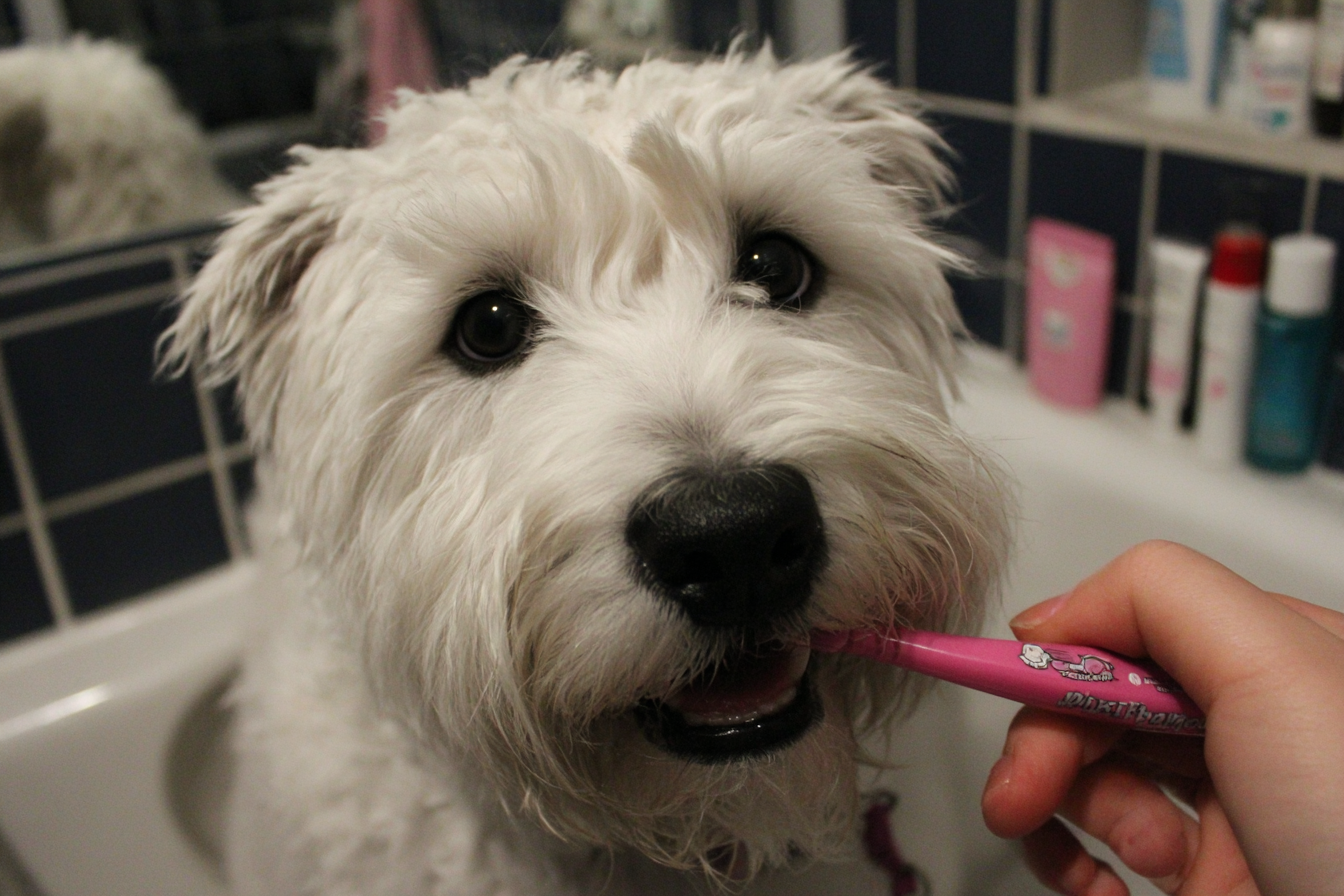Good dental health plays an essential role in keeping your Soft Coated Wheaten Terrier happy and healthy. Like all dogs, Wheatens are prone to developing dental issues that, if left untreated, can lead to pain, infections, and even affect their overall well-being. This guide will walk you through everything you need to know about dental care for your Soft Coated Wheaten Terrier so you can help maintain their bright smile and strong teeth for years to come.
Why Dental Hygiene Matters for Dogs
Dental hygiene is not just about having fresh breath or keeping your dog’s teeth looking good. Poor dental health can cause a number of serious health problems in dogs. Plaque and tartar buildup can lead to gum disease, infections, tooth decay, and even tooth loss. These dental problems can cause significant discomfort and pain for your Wheaten, potentially affecting their eating habits and quality of life.
Moreover, bacteria from infected gums can enter the bloodstream and impact vital organs like the heart, kidneys, and liver. Keeping your dog’s teeth clean helps prevent these complications and supports their overall longevity. For a breed as affectionate and lively as the Soft Coated Wheaten Terrier, maintaining good dental health is critical to keeping them active and thriving.
Common Dental Issues in Soft Coated Wheaten Terriers
Soft Coated Wheaten Terriers, like many small to medium-sized breeds, are susceptible to certain dental problems. Understanding these issues helps you identify early signs and take preventive measures:
- Plaque and Tartar Buildup: This is the foundation for many dental problems. Plaque forms when bacteria accumulate on the teeth, which hardens into tartar if not removed regularly.
- Gingivitis: Inflammation of the gums caused by plaque accumulation. Symptoms include red, swollen gums and bleeding during brushing.
- Periodontal Disease: An advanced form of gum disease that damages the tissue and bones supporting the teeth, potentially leading to tooth loss.
- Tooth Fractures and Wear: Due to chewing on hard objects or natural wear and tear, Wheatens can experience chipped or cracked teeth, which may cause pain or infection.
- Bad Breath (Halitosis): Often a sign of underlying dental issues, bad breath warrants a closer look at your dog’s oral hygiene.
Step-by-Step Guide to Brushing Your Wheaten’s Teeth
Brushing your Soft Coated Wheaten Terrier’s teeth at home is the most effective way to maintain dental hygiene. Here is a simple approach to make the process easy and stress-free for both you and your dog:
- Gather Supplies: Use a dog-friendly toothbrush and toothpaste specifically formulated for dogs. Never use human toothpaste, as it can be harmful to dogs.
- Choose a Comfortable Spot: Find a quiet, well-lit area where your dog feels relaxed. You may want to sit on the floor or use a raised surface if that’s easier for you.
- Introduce the Toothbrush: Allow your Wheaten to sniff and lick the toothbrush and toothpaste. This helps familiarize them with the new objects.
- Start Slowly: Lift their lips gently and brush a few teeth at a time with soft circular motions. Focus on the outside surfaces where plaque tends to accumulate the most.
- Be Consistent and Patient: Aim to brush your dog’s teeth daily, or at least several times a week. Keep sessions short and positive, praising and rewarding your dog after each brushing.
With patience and consistency, most Wheatens adapt well to this routine over time.
Recommended Dental Products for Soft Coated Wheaten Terriers
Using the right dental care products can significantly improve your dog’s oral hygiene and make maintenance easier. Here are some recommended options:
- Toothbrushes: Choose a soft-bristled dog toothbrush or finger brushes that fit comfortably in your hand and are specially designed for your dog’s size.
- Toothpastes: Look for enzymatic toothpaste designed for dogs, which helps break down plaque and tastes appealing to dogs.
- Chew Toys and Dental Chews: Items like dental-friendly chew toys and treats can help reduce plaque by promoting chewing and saliva production.
- Water Additives: Adding certain dental water additives to your dog’s drinking water can help reduce bacteria levels in the mouth.
Recognizing the Signs of Dental Disease
Early detection of dental disease is key to preventing severe complications. Monitor your Soft Coated Wheaten Terrier for these common signs:
- Bad breath that is persistent or unusually strong
- Red or swollen gums
- Bleeding from the gums, especially during or after brushing
- Excessive drooling or difficulty eating
- Loose, broken, or missing teeth
- Pawing at the mouth or face
If you notice any of these symptoms, consult your veterinarian for a thorough dental examination.
The Role of Professional Dental Cleaning
While daily brushing and home care go a long way, professional dental cleanings are an important part of maintaining your Wheaten’s oral health. Veterinarians use specialized tools to remove tartar buildup below the gumline, which is difficult to reach with brushing alone.
Professional cleanings usually require general anesthesia to ensure your dog remains still and comfortable during the procedure. Your vet will evaluate your dog’s teeth, gums, and oral tissues, and may take dental X-rays to assess hidden problems.
Depending on your dog’s age, breed, and dental health, your veterinarian may recommend cleanings once or twice a year. These visits allow any dental diseases to be treated early and help keep your Wheaten’s mouth in optimal condition.
Preventative Dental Care Routines
Beyond brushing and professional cleaning, there are simple steps you can take daily to support your Soft Coated Wheaten Terrier’s dental health:
- Regular Chewing: Provide safe chew toys and dental chews to encourage natural teeth cleaning and gum stimulation.
- Healthy Diet: Feeding a balanced diet formulated for dental health can reduce plaque buildup.
- Routine Oral Checks: Frequently inspect your dog’s mouth for any unusual signs such as swelling, discoloration, or discomfort.
- Limit Hard Objects: Avoid giving your Wheaten bones or very hard items that could break teeth.
- Hydration: Ensure your dog has access to clean water at all times, as saliva is a natural defense against bacteria.
Maintaining these habits alongside regular brushing and vet visits creates a comprehensive dental care plan.
Keeping Your Wheaten’s Smile Bright
Dental care for your Soft Coated Wheaten Terrier doesn’t have to be complicated or stressful. With the right products, routines, and professional support, you can significantly reduce the risk of dental disease and keep your dog’s mouth healthy and comfortable. Start early, be consistent, and make dental hygiene a natural part of your dog’s overall care regimen. Your Wheaten will thank you with a happy, healthy smile that lasts a lifetime.







